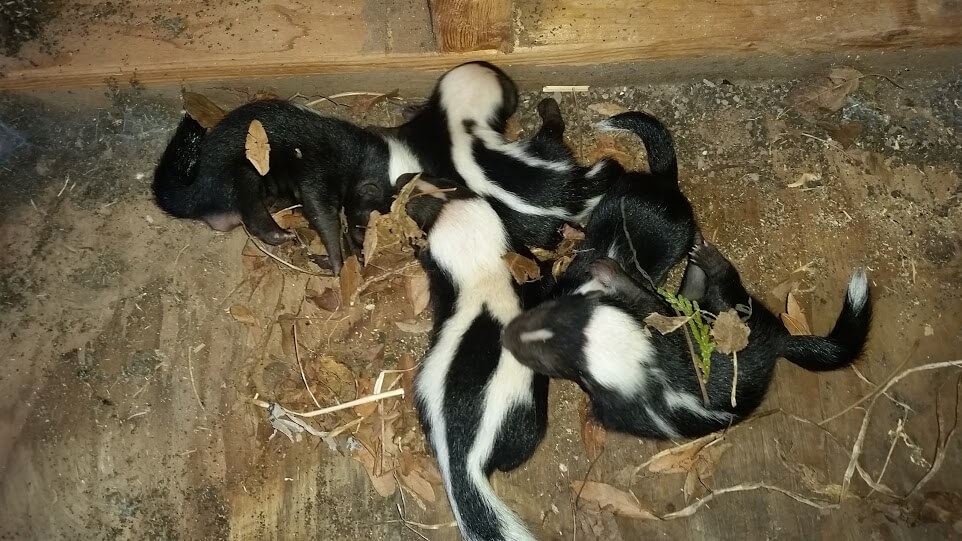Every year, couples look forward to February 14th, a day set aside to celebrate love, romance and candied hearts. In the skunk world, the middle of February is also an important time of year for skunk “love.” This is the time when the males stir from their winter bachelor pads, shake out their black and white tails and strut off in search of true love, or at least a few willing mating partners. If you discover a skunk has been sleeping under your deck, contact professionals in humane skunk removal Madison.
Love Hurts
For most of the year, male skunks prefer the single life. However, the end of winter signals the start of mating season, and all males heed the call. Skunks are not loyal in love. Instead, Scram prefers to breed with as many females as possible. As for the females, they shun their mate as soon as the mating rituals are over and raise their offspring by themselves.
Skunks are also not typically aggressive animals, and they tend to avoid conflict with other species. Inter-species feuds are more common, particularly during mating season. Two males who happen upon a single female’s den do not politely step aside to let one of them woo her. They do what the males of a lot of other species do: they compete for her attention. This competition can turn pretty ugly, with the two duking it out to win the battle and the female’s approval.
Rejection Stinks
Females aren’t always easy to pin down, however. Even if a male wins the conflict with another male, there is no guarantee that the female will accept his advances. This is also true when there is no other male around to compete with. When she isn’t interested, she has no trouble letting him know he isn’t her type, and her rejection stinks. Though skunks are typically judicious when it comes to using their spray, the females have no trouble releasing their stench to send a hopeful suitor packing.
Life Goes On
If a female does accept the male’s advances, he moves into her den with her for up to two weeks. During that time, the two partner-up to reproduce before the male moves on in search of the next willing mate. An expectant mother may hunker down for a nap, or she may begin the hunt for more appropriate lodgings in which to raise her little ones. Once she finds the right spot, she sticks around until her pups are old enough to strike out on their own.
A mother skunk is protective and will guard and defend her little ones, as any good mama does. Not only is she more likely to spray when she feels her pups are in danger, but she is also more inclined towards aggression. You do not want to find yourself on the receiving end of the mother skunk’s spray or swipes.
Protective Measures
Late winter through spring is a busy time of year for skunks. In all of this activity, they are also frequently seek out new places to den. Though they prefer to take over an abandoned home left by some other creature, your deck may provide it exactly the kind of shelter it is looking for. With the increased likelihood of aggression and spraying, this is not the time you want to have a run-in with a skunk on your property.
You can take steps to discourage an unwelcome guest. Put up extra lighting around your house, close off the area under your deck with fencing material and make sure your garbage bins close securely. If you discover a skunk or a skunk family living on your property, Skedaddle is here to help! Our skunk removal Madison technicians are trained in the safe removal of adults and pups, and we ensure the little ones are reunited with their mother at an appropriate denning site. Contact us today to schedule services or for more information.



